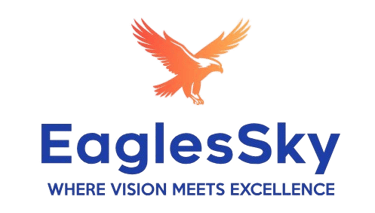Essential Skills for Success
Muhammad Riaz
3/13/20253 min read


Mastering Essential Skills for Personal and Professional Growth
In today’s fast-paced world, developing a variety of skills is key to achieving personal and professional success. Whether you’re looking to advance your career, enhance your personal life, or simply boost your confidence, mastering certain skills can make a huge difference. In this blog, we’ll explore some essential skills that everyone should focus on to reach their full potential.
1. Communication Skills
Good communication is the foundation of all relationships—whether personal or professional. Being able to express your thoughts clearly and listen effectively can open doors to new opportunities and build stronger connections with others.
Verbal Communication: Speak confidently and with clarity.
Non-Verbal Communication: Pay attention to body language and facial expressions.
Active Listening: Focus on understanding what others are saying before responding.
Improving these aspects of communication will help you build rapport, resolve conflicts, and lead with influence.
2. Time Management
Managing your time effectively is crucial to productivity and reducing stress. When you can prioritize tasks and avoid distractions, you’ll accomplish more in less time.
Set Priorities: Identify what’s urgent and important.
Plan Your Day: Use to-do lists or digital tools like calendars to stay organized.
Avoid Procrastination: Break tasks into smaller, manageable steps to avoid delays.
Mastering time management leads to greater efficiency and work-life balance.
3. Problem-Solving Skills
Life and work present many challenges, and being able to think critically and solve problems is a valuable skill in any setting.
Identify the Problem: Understand the core issue before jumping to solutions.
Brainstorm Solutions: Explore various options and assess their potential outcomes.
Evaluate and Act: Choose the best course of action and implement your solution.
Developing strong problem-solving skills not only improves decision-making but also boosts your confidence in handling difficulties.
4. Emotional Intelligence (EQ)
Emotional intelligence is the ability to recognize and manage your emotions, as well as the emotions of others. It plays a significant role in leadership, teamwork, and conflict resolution.
Self-Awareness: Recognize your emotions and their impact on others.
Self-Regulation: Stay calm under pressure and manage emotional responses.
Empathy: Understand and relate to the emotions of others.
EQ helps you navigate social interactions and builds stronger, more meaningful connections.
5. Leadership Skills
Leadership is not just about being in charge; it’s about inspiring and motivating others to achieve a common goal. Good leaders possess a combination of various skills, such as communication, empathy, and decision-making.
Vision: Set clear goals and objectives for your team.
Inspire and Motivate: Encourage others and create an environment of trust.
Decision-Making: Make tough decisions with confidence and fairness.
Whether you're leading a team or managing your own projects, leadership skills are essential for success in any field.
6. Adaptability and Flexibility
The ability to adapt to change is more important than ever in today’s rapidly evolving world. Whether it’s learning a new technology or adjusting to new circumstances, being flexible allows you to remain effective in various situations.
Open-Mindedness: Be open to new ideas and different perspectives.
Learning Agility: Quickly pick up new skills and adjust to new tools or environments.
Stay Positive: Embrace change with a positive mindset and remain solution-focused.
Adaptability helps you thrive in dynamic environments and gives you the ability to bounce back from setbacks.
7. Critical Thinking
Critical thinking is the ability to analyze information, evaluate different perspectives, and make well-informed decisions. It helps you avoid biases and think logically about complex issues.
Question Assumptions: Challenge the status quo and explore alternatives.
Analyze Information: Assess the reliability of sources and the validity of arguments.
Make Decisions: Weigh the pros and cons before making informed choices.
Critical thinking is essential for problem-solving, innovation, and personal growth.




Mastering key skills not only enhances your professional abilities but also contributes to personal fulfillment. By continuously developing your communication, time management, emotional intelligence, leadership, and problem-solving skills, you can achieve more and lead a more balanced life. Remember, skills take time and practice to master, but with consistency and dedication, you can unlock your full potential.
Which skill do you want to develop the most? Let us know in the comments!


Thank you for visiting EaglesSky – where innovation, creativity, and growth come together.
We are dedicated to empowering you with books, poetry, skill development content, insightful blogs, and expert guidance. Stay connected and continue your journey with us!
